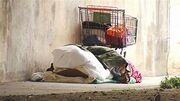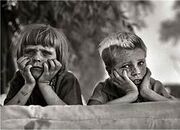Page values for "CYCLE OF INCARCERATION"
"Problem" values
1 row is stored for this page| Field | Field type | Value |
|---|---|---|
| Reference_URLs | List of URL, delimiter: , | |
| Region | Page | Tulsa |
| Description | Wikitext | The cycle of incarceration in Tulsa is influenced by several factors, including poverty, racism, mental illness, and drug addiction. More than 35% of north Tulsa’s population lives in poverty compared with 17% in the rest of the city. Citywide, the Black poverty rate is 34% while the white poverty rate is 13%. This high poverty rate contributes significantly to the cycle of incarceration in the city. People living in poverty are more likely to be incarcerated for various reasons. Desperation often leads individuals to resort to criminal activities as a means of survival, while their limited access to resources such as education and job training makes it harder for them to avoid engaging in criminal behavior. The problem of poverty in the cycle of incarceration in Tulsa, Oklahoma is a pressing issue with far-reaching consequences. The city struggles with high poverty rates, exceeding the national average, which creates a challenging environment for its residents. Poverty breeds economic disparities and contributes to higher crime rates as individuals facing financial insecurity may turn to illegal activities out of desperation. Limited access to legal resources further exacerbates the problem, as impoverished individuals often struggle to afford adequate legal representation, leading to unequal treatment before the law. Incarcerated individuals face significant challenges upon release, including the risk of losing their jobs, homes, and relationships. The disruption in their lives often exacerbates the cycle of poverty, making it difficult for them to reintegrate into society. Additionally, incarcerated individuals are more vulnerable to violence within the prison system and are at higher risk of developing mental health problems.
References |
| parent | Integer | |
| country | Text | United States |
| state | Text | Oklahoma |
| city | Text | Tulsa County |
| coordinate | Coordinates | 36.1539816, -95.992775 |
| feature_image | File | |
| images | List of File, delimiter: , | • • |
| videos | List of URL, delimiter: , | |
| geo_id | Text |


